COVID-19 Research at PHRI
From the international ACT COVID-19 program, to sub-studies PURE SARS-CoV-2 and ACT COAG, and virtual care in the PVC-RAM study
- Homepage
- >
- Special Initiatives
- >
- COVID-19 Research at PHRI
Starting in April 2020, PHRI was quick to design and implement clinical trials and studies to address the COVID-19 pandemic and – just as importantly – our research program has been flexible, with adaptive intervention arms, adaptive therapies and sample sizes to accommodate new and emerging data from research around the world.
As well as investigating therapies that may slow the progression of the disease, PHRI researchers are tackling unique elements, including:
- Why do some people get COVID-19 while others don’t, even with similar degrees of exposure?
- Does ethnicity play a part in getting COVID-19 or in how the disease progresses?
- What underlying co-morbidities are risk factors in getting sick, or being sicker, with COVID-19?
- What are the long-term health effects of the disease, whether or not one gets severe symptoms??
- Does blood clotting play a part in the progression of COVID-19?
- How might the connection between the AC2 receptor and the SARS-CoV-2 virus affect the disease?
- Can remote monitoring of post-surgery patients reduce the burden on hospitals dealing with the pandemic?
ACT COVID-19
The Anti-Coronavirus Therapies to Prevent the Progression of COVID-19 (ACT COVID-19) study includes outpatient and inpatient open-label, parallel group RCTs. More than 100 locations and 4000 patients are expected in this global research program.
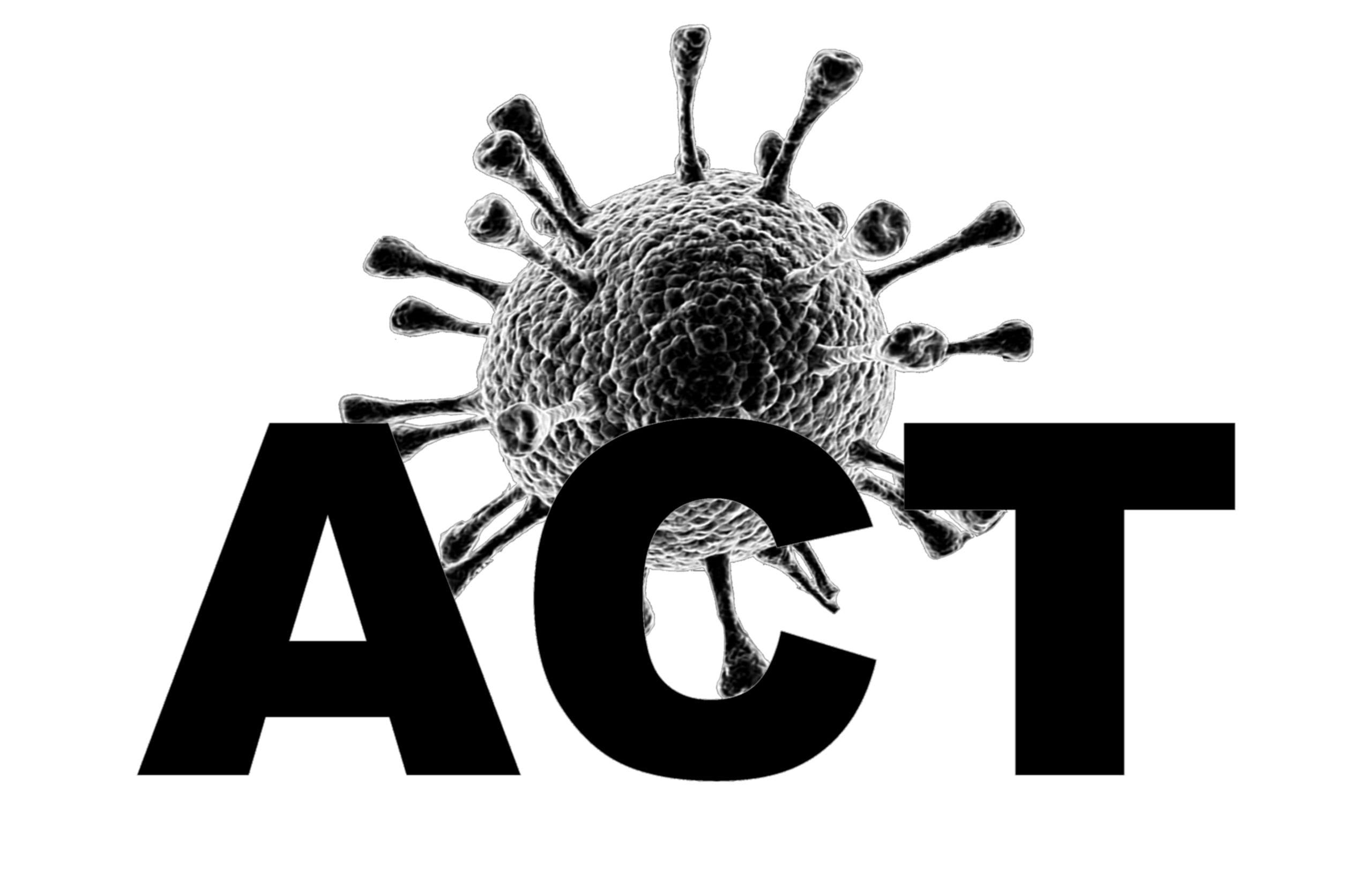
ACT-COAG
Our substudy, Assessing Coagulation Biomarkers to Accelerate the Discovery of Effective Therapies for COVID-19 (ACT-COAG), will measure blood clotting markers in patients in our ACT COIVD-19 research program to provide insights into the mechanisms of COVID-19 and its clotting complications, and more.
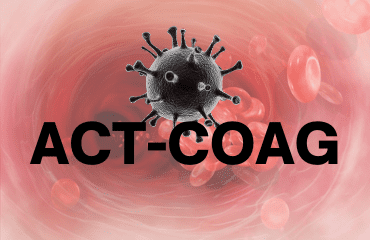
PVC-RAM-1
The Post Discharge After Surgery Virtual Care with Remote Automated Monitoring Technology (PVC-RAM-1) study investigated if, during the first 30 days following a semi-urgent, urgent or emergency surgery, the effect of RAM technology has on hospital readmission and ER visit, COVID-19 infection, and more.
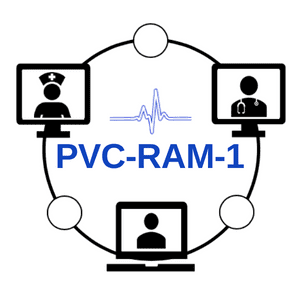
PURE COVID-19
Are there factors that increase the risk of people getting infected by COVID-19, or that protect against infection? What are the long-term health effects of getting infected by COVID-19? If you’ve had the infection (even if symptoms were not severe), can that lead to long-term lung damage and other complications such as pneumonia, heart attacks, heart failure and stroke? Our substudy, PURE COVID-19, will address this important questions.

ACE2 and SARS-CoV-2
PHRI’s team in the Genetic and Molecular Epidemiology Laboratory is going deeper with its pre-pandemic investigation into the ACE2 receptor, now that it has been found to be interconnected with SARS-CoV-2.
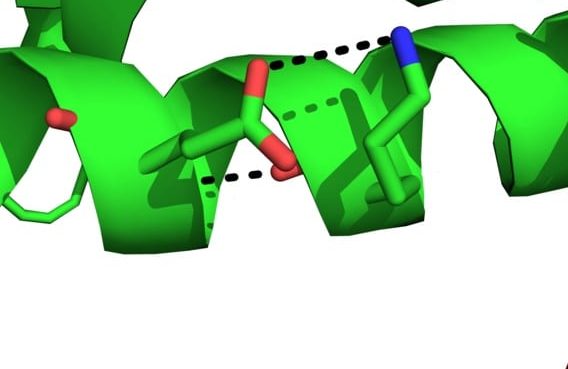
TIMING
The TIMING study is addressing the marked and unexpected reduction in the supply of the mRNA vaccines to Canada, as of January 2021, which has led to a policy change of delaying the second dose of the Pfizer vaccine to healthcare workers (HCW) up to 35 to 42 days.
We therefore propose an opportunistic study in which we will study and address the following questions:
- What are the cellular immune responses and humoral responses to the first dose of mRNA vaccine up to 42 days and following the second dose up to 12 months?
- How does the dosing schedule impact on the secondary immune responses and long term immunity?

COVID CommUNITY - South Asian
The COVID CommUNITY – South Asian study is being conducted to understand the immune response to the COVID-19 vaccine and its safety in South Asians (people from India, Sri Lanka, Pakistan, Nepal, Bangladesh), who have been disproportionately affected by the pandemic and have worse outcomes from COVID-19 infection compared to other groups.
The study also aims to understand why some people may be less confident in getting the COVID-19 vaccine, and the overall impact of COVID-19 in this community. The study will provide insight into how a pandemic of this scale can be prevented in the community and vulnerable populations.
A total of 3000 participants are being recruited in the Greater Toronto Area and the Greater Vancouver Area.
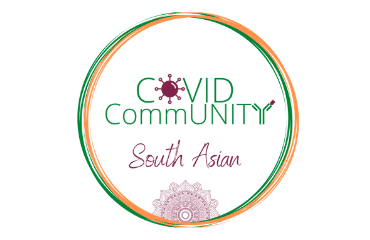
COVID CommUNITY - First Nations
The COVID CommUNITY – First Nations study is being conducted at several First Nations communities across Canada, to understand the immune response and safety of the COVID-19 vaccine in First Nations people who have been disproportionately affected by the pandemic, and have worse outcomes from COVID-19 infection compared to other groups.
The study also aims to understand why some people are not as confident in the COVID-19 vaccine as others, and to document the overall impact of COVID-19 in these communities.
The study will also provide insight into how a pandemic of this scale can be prevented in these communities and other vulnerable populations.

Key Team Members
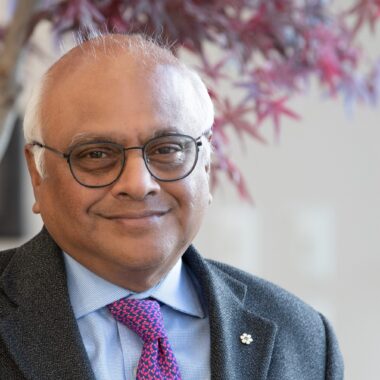
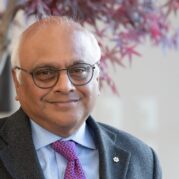
Salim Yusuf
Executive Director; Senior Scientist
Salim Yusuf is an internationally renowned cardiologist and epidemiologist, whose work over 40 years has substantially influenced prevention and treatment of cardiovascular disease. Born in India, medically qualified at St. John’s Medical College, Bangalore in 1976, he received a Rhodes Scholarship and obtained a DPhil from Oxford, during which he (along with Richard Peto, Rory Collins and Peter Sleight) initiated the concepts of large, simple trials, and meta-analysis. He proposed the concept of combination drug treatment for prevention of CVD to achieve large reductions in CVD with a single pill (now called the polypill concept), but more importantly has been evaluating the concept through large randomized trials.
He leads several global studies involving more than 60 countries in every inhabited continent of the world aimed at enhancing knowledge about the biological, behavioural and societal causes, consequences, and approaches to the control of heart diseases, and strokes through large multi-country programs such as INTERHEART, INTERSTROKE, and PURE.
He holds a Heart and Stroke Foundation of Ontario Research Chair and has received (among others) the Lifetime Research Achievement award of the Canadian Cardiovascular Society; the Paul Wood Silver Medal of the British Cardiac Society; the European Society of Cardiology gold medal, the clinical Research Prize of the American Heart Association and the International Award and the Braunwald Lecture of the American College of Cardiology. He has been inducted into the Royal Society of Canada and the Canadian Medical Hall of Fame; been appointed as an Officer of the Order of Canada, and received the Canada Gairdner Wightman Award in 2014. He has received four honorary doctorates, and is among the top 20 most cited health researchers in history.
Salim Yusuf has published more than 1,000 articles in refereed journals, rising to the second most cited researcher in the world for 2011. He has mentored more than 120 scientists, several of whom are in leadership positions across the globe. He has been President of the World Heart Federation (2015-2016), where he initiated several programs (the Emerging Leaders program, road maps for CVD control and a course for training primary care practitioners in CVD prevention) aimed at halving the CVD burden globally within a generation. The World Heart Federation has recognized his contributions by naming the program the Salim Yusuf Emerging Leaders Programme.
He is a Distinguished University Professor of Medicine, and Executive Director of the Population Health Research Institute, McMaster University and Chief Scientist, Hamilton Health Sciences.


John Eikelboom
Senior Scientist
John Eikelboom is Associate Professor in the Department of Medicine, McMaster University, and a haematologist in the Thrombosis Service, Hamilton General Hospital. He originally trained in Internal Medicine and Haematology in Perth, Australia and subsequently moved to Hamilton to take up a Tier II Canada Research Chair in Cardiovascular Medicine.
He has co-authored more than 350 articles in peer-reviewed journals. His current research, supported by the Canadian Institutes for Health Research, the Heart and Stroke Foundation and the National Health and Medical Research Council of Australia, focuses on the efficacy and safety of antithrombotic therapies, outcomes after blood transfusion and bleeding, and the mechanisms of variable response to antiplatelet drugs.


PJ Devereaux
Senior Scientist
PJ Devereaux is Senior Scientific Lead, Perioperative and Surgery, PHRI, Professor and University Scholar in the Departments of Health Research Methods, Evidence, and Impact (HEI) and Medicine at McMaster University, and Director of the Division of Cardiology at McMaster.
The focus of his clinic research is vascular complications around the time of surgery, leading several large, international RCTs and observational studies addressing this issue. He has published more than 250 peer-reviewed papers and more than 50 book chapters and editorials. He is supported by a Tier 1 Canadian Research Chair in Perioperative Medicine, and holds the Yusuf Chair in Cardiology at McMaster University.
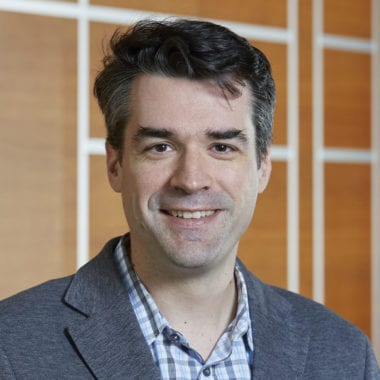

Guillaume Paré
Director, CRLB- GMEL; Senior Scientist
Guillaume Paré is Director of the Clinical Research Laboratory and Biobank (CRLB) – Genetic and Molecular Epidemiology Laboratory (GMEL). He is also Deputy Director of the Thrombosis and Atherosclerosis Research Institute (TaARI), a Professor of Pathology and Molecular Medicine, a Professor in the Department of Health Research Methods, Evidence and Impact, and a University Scholar at McMaster University. He holds the Cisco Professorship in Integrated Health Biosystems.
His clinical interests are centered on lipoprotein disorders, obesity and cardiovascular disease prevention, with research interests in cardiovascular genetics, biomarker development and pharmacogenomics. Gui’s research combines high-throughput biomarker screens with genetics, bioinformatics and epidemiology to identify novel cardio-metabolic biomarkers. He has published more than 200 papers and has been cited over 27,000 times.
A medical biochemist with board certification from the Royal College of Physicians and Surgeons of Canada, Gui completed a Master’s in Human Genetics at McGill University under the supervision of renowned geneticist Thomas Hudson. He further trained in genetic epidemiology with Paul Ridker at Harvard Medical School.
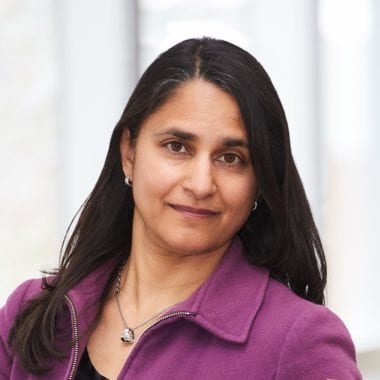

Sonia Anand
Senior Scientist
Sonia Anand is a Professor, Medicine and Epidemiology at McMaster University; Associate Chair, Diversity and Equity in McMaster’s Department of Medicine; Director of McMaster’s Population Genomics Program; inaugural Chair, Equity, Diversity and Inclusion (EDI) Committee of the Canadian Cardiovascular Society; and Director, Chanchlani Research Centre for Global Health at McMaster, among other roles.
Her present research focuses upon the environmental and genetic determinants of vascular disease in populations of varying ancestral origin, women and cardiovascular disease. Sonia has published more than 200 articles in peer review journals. Shas been inducted into the Canadian Academy of Health Sciences, and received the Queen Elizabeth II Diamond Jubilee Medal.


Hertzel Gerstein
Deputy Director; Senior Scientist
Hertzel Gerstein is Deputy Director, PHRI, and our Senior Scientific Program Lead, Diabetes, as well as a Professor, Medicine, McMaster University. He is also Director of the Division of Endocrinology & Metabolism and Director of the Diabetes Care and Research Program. He has pioneered the application of large simple outcome trials to people with diabetes globally, and developed the concept of dysglycemia as an important risk factor for many of the serious health outcomes that afflict people with an elevated glucose level regardless of diabetes status. He currently leads clinical trials and epidemiological studies related to: a) the prevention and therapy of diabetes and its many consequences, and b) the role of dysglycemia and relative insulin insufficiency on the development of diabetes, cardiovascular disease, cognitive impairment and other chronic conditions. Key studies in which he has played or continues to play a major leadership role include HOPE, MICRO HOPE, ACCORD, DREAM, EpiDREAM, ORIGIN, TIDE, ACE, ELIXA and REWIND.
Hertzel Gerstein has published more than 300 papers, editorials and commentaries, mainly on diabetes-related issues and co-edited the textbook Evidence-Based Diabetes Care. He is an Associate Editor for ACP Journal Club, and is on the editorial board of the Journal of Diabetes and Lancet Diabetes and Endocrinology. He has received several honors including the Canadian Diabetes Association’s Young Scientist Award (1999), Frederick G. Banting award (1999), Charles H. Best award (2007) and Lifetime Achievement Award (2012).
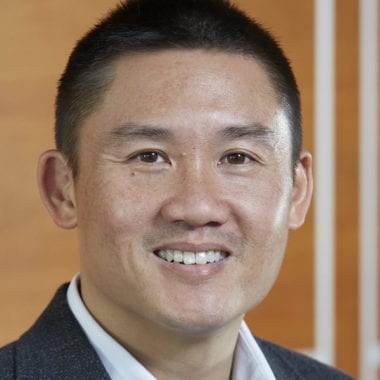

Darryl Leong
Senior Scientist
Darryl Leong is a Scientist at PHRI, Director of the McMaster University and Hamilton Health Sciences Cardio-Oncology Program, Associate Professor, Department of Medicine (Cardiology), McMaster University, and Staff Cardiologist at Hamilton Health Sciences. He has methodological expertise in clinical epidemiology and clinical trials, and content expertise in physical frailty, echocardiography, and cardio-oncology. His research is supported by the CIHR, and he has published more than 150 manuscripts including all the leading internal medical and cardiovascular journals.
He graduated from the University of Adelaide Medical School with Deans Listing and Honours for academic excellence, completed his cardiology training, Doctor of Philosophy, Master of Public Health, and Master of Biostatistics degrees at the University of Adelaide in Australia, and completed a post-doctorate fellowship in cardiovascular imaging at the Leiden University Medical Centre in The Netherlands, before re-locating to Canada.
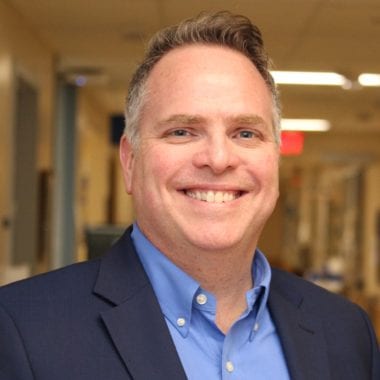

Michael McGillion
Scientist
Michael McGillion is Associate Professor, and Assistant Dean, Research, at the School of Nursing, McMaster University. He is the Heart and Stroke Foundation/Michael G. DeGroote Endowed Chair in Cardiovascular Nursing Research, and the International Visiting Professor of Digital Health, at Coventry University in the UK.
He is an internationally-recognized researcher in the area of persistent forms of cardiac pain such as refractory angina and unrelieved chest pain following successful revascularization procedures. He was Chair of the Joint Canadian Cardiovascular Society – Canadian Pain Society guidelines for the management of refractory angina, funded by the Canadian Institutes of Health Research (CIHR). He is Principal Investigator of the largest CIHR-funded, international prospective cohort study to examine social and psychological predictors of chronic post-surgical pain following cardiac surgery. His research focuses on remote automated monitoring and virtual recovery support for people recovering from cardiac and vascular surgery, decision support for people living with RFA, and global-scale, web-based dissemination of new evidence on persistent forms of cardiac pain.
Mike has been recognized for his research and advocacy by receiving the Canadian Pain Society Early Career Award and the McMaster University Arch Award for outstanding contributions to society; and was the first University Scholar (2019) from the McMaster School of Nursing.


Richard Whitlock
Scientist
Richard Whitlock is Associate Chair, Research, and a Professor at the Department of Surgery, McMaster University. He was awarded the inaugural Canada Research Chair in Cardiovascular Surgery in 2020.
As well as being a PHRI Scientist, Richard is a cardiac surgeon and intensive care physician at Hamilton Health Sciences. His clinical focus is on aortic valve intervention and aortic surgery. He is a lead investigator for the CIHR funded studies SIRS, LAAOS III, and TRICS III, which have established a network of more than 120 centres to address important questions in his field.
He has published more than 90 articles in referred journals. Medically qualified at the University of Toronto, Richard received his specialist training in cardiac surgery and critical care medicine at McMaster University. In 2012, he received his PhD in clinical epidemiology.
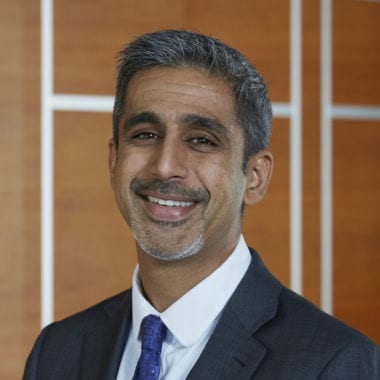
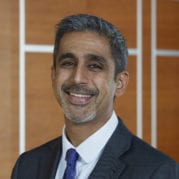
Sanjit Jolly
Scientist
Sanjit Jolly is an interventional cardiologist at Hamilton Health Sciences and associate professor at McMaster University. He has formal training in clinical trials with a M.Sc. in Health Research Methodology from McMaster. He was the principal investigator of the RIVAL trial, a randomized trial of 7021 patients comparing radial and femoral access for coronary intervention. He is also the principal investigator trial of the ongoing TOTAL trial, an international randomized trial (N=10,700) of thrombectomy during primary PCI.


Emilie Belley-Côté
Scientist
Emilie Belley-Côté is an Assistant Professor in the Department of Medicine at McMaster University; she practices critical care cardiology in the cardiovascular intensive care unit and coronary care unit at the Hamilton General Hospital. Her research interests include perioperative cardiac surgery care, knowledge synthesis and guideline development. At this stage in her career, she has more than 120 publications, including articles in NEJM, Lancet, JAMA, as well as first-tier critical care journals.
She obtained her MD from Université de Sherbrooke in 2006. After internal medicine and cardiology training, as well as an MSc in Clinical Sciences, she completed a critical care fellowship at McMaster. In 2019, she completed a PhD in Health Research Methodology at McMaster University.
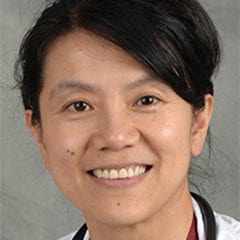
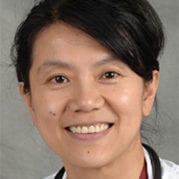
MyLinh Duong
Associate Scientist
MyLinh Duong is a respirologist at Hamilton Health Sciences, and Associate Professor, Department of Medicine, McMaster University. Her research interests include respiratory epidemiology, and understanding the environmental and social determinants of lung development and lung function. She is the respiratory lead for a number of PHRI’s population-based studies including PURE, FAMILY and the global heart failure registry, G-CHF.
She obtained her medical degree, specialist and sub-specialist training in Internal Medicine, Sleep Medicine and Respiratory Medicine at the University of Adelaide, Australia. This was followed by a research fellowship in the areas of airway inflammation, asthma and COPD at the Firestone Clinic and McMaster University, Canada, where she obtained a Master’ degree in Health Research Methodology and Epidemiology.


Noel Chan
Scientist
Noel Chan is an Assistant Professor in the Division of Hematology and Thromboembolism, Department of Medicine, McMaster University, specializing in anticoagulant therapy and thrombosis medicine. His research seeks to improve our understanding of the triggers for thrombosis (including the role of inflammation) and the determinants of variable response to antithrombotic therapies to inform on novel strategies that have the potential to further reduce the burden of thrombosis.
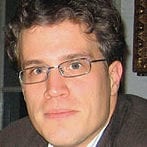

Domenik Mertz
Associate Investigator
Domenik Mertz is Associate Professor, Division of Infectious Diseases, Department of Medicine, McMaster University, and Medical Director Infection Control at Hamilton Health Sciences. His research interests include the epidemiology and risk factors for resistance and infections by resistant bacteria; prevention of C. difficile infection; infection control and of hospital epidemiology; and antimicrobial stewardship.
He has published more than 60 peer reviewed articles to date, is an associate editor for BMC Infectious Diseases, and serves as the first-named editor for the 3rd edition of the book ‘Evidence-based Infectious Diseases’.
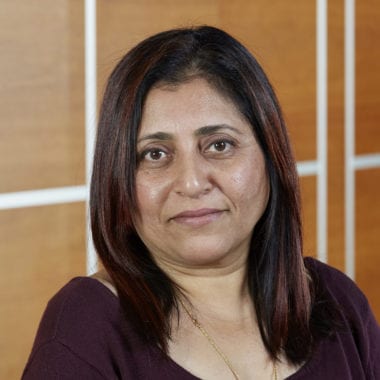

Sumathy Rangarajan
Program Director
Sumathy Rangarajan has been Program Director, Global Health, since 2016, preceded by many years’ service at PHRI in other roles. She oversees the PURE study team, as well as the INVICTUS rheumatic AF treatment trial, the CANPWR pediatric weight management registry, and others.
She holds both a Bachelor of Science Degree and a Master of Science degree from Pune University in India.


Dipika Desai
Program Manager
Dipika Desai oversees many epidemiologic studies, including the South Asian birth cohort, START, the South Asian Heart Risk Assessment (SAHARA), and the Canadian Alliance for Healthy Hearts and Minds (CAHHM), as well as management assistance and oversight in the utilization of samples from a number of other studies.
She has a Bachelor’s degree in Food and Nutrition from the M S University in Baroda, India, and a Master’s degree in Human Nutrition from the University of British Columbia.


Jessica Vincent
Program Director
Jessica Vincent has more than 15 years’ experience in coordinating and managing large, international clinical trials. As Associate Program Manager, she oversees interventional trials, registries, and observational research studies in the areas of perioperative medicine, cardiac surgery, and digital health.
She holds an Honours Bachelor of Science Degree from Queens University, and a Master of Clinical Epidemiology Degree from the University of Newcastle.
Partners
These organizations were involved in this study as: grant providers; funders (including in-kind); national leaders not directly involved in the research team, and other supporters.


